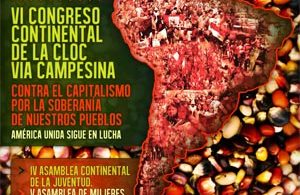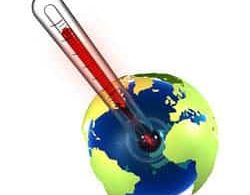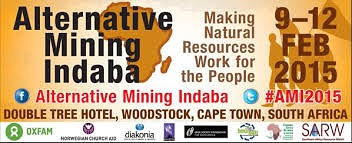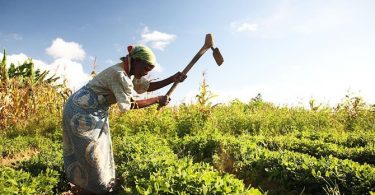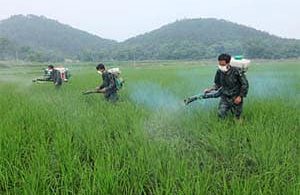Once again, corporate environment-killers presented a festival of greenwashing, where shopping was promoted as a painless way to save the world.
Rural activists in Latin America call for socialism
Final declaration of the 6th Congress of countryside organizations affiliated with La Via Campesina, held April 10-16, 2015, in Buenos Aires, Argentina
What strategy for an ecological ‘great transition’?
John Bellamy Foster reviews Johan Rockström's call for a 'Great Transition' that combines the goal of prosperity for all with a stable and resilient planet, based on nine critical planetary boundaries.
Ecosocialist bookshelf, April 2015
Grabbing back ... A world to build … The anthropology of utopia … We make our own history … Red skin, white masks … Dodging extinction … Plebeian power
Stop, Thief! The commons, enclosures, and resistance
Book Review: Peter Linebaugh documents the struggle for the commons, from medieval times to today, replete with tales of heroic resistance and murderous repression
Did early humans wipe out most large mammals?
In 'The Sixth Extinction,' Elizabeth Kolbert accepts the claim that overkill by early humans led to the extinction of many large mammals. That charge is politically motivated and there is little evidence to support it.
The global warming ‘pause’ is politics, not science
The so-called 'pause' in the rate of global warming is false and distracting. It is a politically engineered excuse to avoid taking action on climate change.
Naomi Klein, Jodi Dean and ‘Green Keynesianism’
Leftist critics of Naomi Klein's This Changes Everything need to answer a question she posed: History is knocking at your door: will you answer?
The Sixth Extinction: Are humans the enemy?
Book Review: Elizabeth Kolbert's best-selling account of mass extinctions blames human nature, ignoring the crucial role of capitalism’s relentless search for growth and accumulation.
On ’60 Minutes’, black Africans are invisible and voiceless
Biased 'news' coverage of wildlife and the Ebola crisis illustrates the worst prejudices of modern American journalism on the subject of Africa.
Climate prescriptions that won’t cure the disease
Book Review: In 'Tropic of Chaos,' Christian Parenti presents a convincing and disturbing portrait of unfolding planetary crisis, but the solutions he offers don't match the challenge.
Should U.S. Marxists support the Greens?
Our job is not to stand across the street yelling at people until they pass resolutions calling for the abolition of surplus value. We must be with the masses, where and when they are willing to struggle.
Mining, energy, climate, capitalism: Why don’t NGOs connect the dots?
Despite making powerful criticisms of multinational mining corporations, an NGO-organized conference in Cape Town ignored essential links with related struggles
Declaration of the International Forum for Agroecology
Real solutions will not come from the industrial model. Agroecology is a key form of resistance to an economic system that puts profit before life.
Bugger the Bankers
A powerful and effective (and true and funny) protest song for our time
Revitalized climate movement draws 20,000 to London protest
The movement that stalled after the failed climate talks in Copenhagen 2009 is back on the streets – bigger, stronger and more confident than ever
The secret history of pollution and the EPA
In 'Poison Spring', an insider documents the culture of fraud and corruption that infests the U.S. Environmental Protection Agency and endangers the lives of millions
Declaration of South African Food Sovereignty Campaign
Break the power of food corporations. Establish a constitutional right to food. Build food sovereignty from below, based on small scale farming and agroecology, not industrial agriculture
Capitalism versus rational agriculture
Highly recommended reading: Two articles on the contradictions between growing food to meet essential human needs and growing food to produce profit
Climate inaction: The appalling complicity of liberal media
As Earth steadily moves deeper into the danger zone, corporate media responds by giving less and less coverage to climate and the environment



